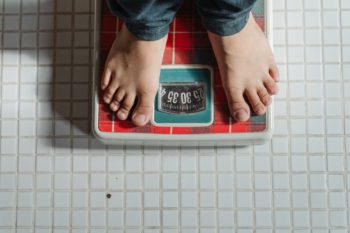The restrictions put in place during the ongoing COVID-19 pandemic have put an additional strain on individuals with eating disorders.

According to Priory, a provider of mental health facilities in the U.K., between 1.25 and 3.4 million people in the U.K. suffer from an eating disorder, varying from anorexia nervosa, bulimia nervosa, binge-eating disorders and other eating disorders.
They aren’t always the starting point of a person’s turmoil, but can quickly consume their whole life, especially as restrictions limit movement in the battle against the novel coronavirus.
One nursing student at the University of Lincoln, who asked to remain anonymous, told The Linc: “I’m currently suffering with body dysmorphia and have also suffered with bulimia. I have serious calorie restrictions but it is very hard at home as I live with my mum and she really tries to force food onto me.
“My anxiety is through the roof and I now spend more time obsessing over my weight and will try to see how long I can go without eating.”
She hasn’t sought professional help, out of fear that it could jeopardise her future nursing career.
“My mum has been my main point of help but I’m still struggling.
“Body dysmorphia isn’t a joke – it’s really awful. Eating disorders have the ability to destroy relationships and friendships, and I feel like a lot of people are glamourising them, especially on apps like Tiktok,” she said.
Heidi Tabitha Lorraine Leech, who studies Criminology at the University of Lincoln, suffers from a binge-eating disorder.
She said: “It’s hard wanting to stay active and busy when the constant strain of going out could induce catching coronavirus, or worse still, catching it and giving it to someone in a more vulnerable position than I am, so there is so much guilt.
“With the guilt meant trying to find other ways to cope and that happened to be snacking and so much more food than my body was used to, and it feels like an utter loss of control.”
As lockdown continued and the fear of COVID-19 increased, social media, such as TikTok and Instagram, which specialise in quick bursts of content, became a main source of entertainment.
Weight loss and fad diets often crop up as trending topics, which can lead to victims of eating disorders restricting or over-indulging in their eating habits.

It became a negative influence in ms Leech’s life.
“I felt pressure to start lockdown with one appearance and come out of it looking completely different. I felt like I would let other people down if I came out of lockdown heavier,” she said.
Several factors make it difficult for those with eating disorders to seek help. One of the largest misconceptions is that a person suffering from an eating disorder will appear overly thin, as anorexia is one of the most well-known disorders.
22-year-old Louise Cox from Lincolnshire said: “I was always embarrassed to talk about my binge-eating disorder because I didn’t have the stereotypical body type, but eating disorders are also linked to past trauma, low self-esteem and depression – not just food.
“I used to sit and plan my binge meal, cry whilst forcing large amounts of food inside me, then feel instantly guilty and would make myself sick. It became the only thing I felt I could control.”
Eating disorders are so widely misunderstood that when a person seeks help, they are given boxes to tick. If they fit certain categories, a GP will help. Otherwise, it becomes complicated.
The ongoing coronavirus restrictions mean that much of normal day-to-day life has been thrown into disarray, disruption and distress. Under the circumstances, some people look for anything they feel they can control.
The Lincolnshire Partner NHS Foundation Trust said their referral rate decreased during lockdown, only to rise again once regulations were eased.
“It is likely that patients now feel more confident to seek support from their GP and their fears around COVID-19 have reduced.
“We encourage them to focus on what they can ‘control’ in their lives and get them to consider how COVID-19 has had a significant impact on the entire world and not just on them,” the trust said.
Louise Cox also had a piece of advice for those in the midst of an eating disorder: “You do not have to struggle alone. Every person’s experience is different and I feel as though that’s where misconceptions take place. Just remember the road to recovery will take so much time, and it will be bumpy, but you will get there.”

